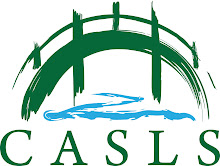Here’s a rare opportunity to make the study of Ancient Greek into a modern, hands-on pursuit:
---
In 1896, students from Oxford University on backpacking trip stumbled upon a rubbish dump in the ancient Egyptian city of Oxyrhynchus. To modern archaeologists, the contents were about as far from rubbish as you can possibly get: thousands of pieces of Greek papyri, dating back to the period after Alexander the Great conquered Egypt.
The students collected the papyrus fragments and brought them back to Oxford, but due to the sheer number of fragments, translation has been slow going.
Now they’re crowdsourcing the translating, allowing everyday people like you and me to help analyze the papyri. Working with a company called Zooniverse, the university has set up a website where anybody with some spare time can help decode the ancient texts.
You don’t have to know a thing about ancient Greek to help, either. When you go to the AncientLives.org website, you’ll be presented with a papyrus fragment and a picture of the Greek alphabet, including examples of ancient handwriting to give you an idea of what the letters looked like written down. Using these examples, you can give your best guess about each of the letters on your fragment of papyrus. Then, the fragment is sent to a University scholar for double-checking and translation.
Read the full blog entry at http://www.k-international.com/blog/ancient-greek-translation
Read a related article at http://www.bbc.co.uk/news/uk-england-oxfordshire-14289685
You and your students can get involved in this effort at http://ancientlives.org
August 14, 2011
Subscribe to:
Post Comments (Atom)





This comment has been removed by a blog administrator.
ReplyDelete